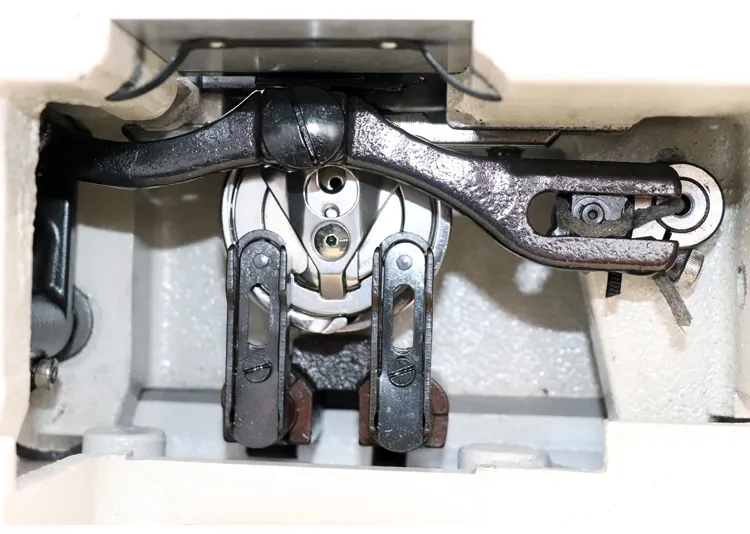pp bag sewing machine
The Rise of PP Bag Sewing Machines Revolutionizing the Packaging Industry
In an era where sustainability and efficiency are at the forefront of industrial development, the PP (polypropylene) bag sewing machine has emerged as a critical player in the packaging industry. This specialized equipment is designed to stitch together polypropylene bags that are widely used for packaging a variety of products, from grains and seeds to fertilizers and chemicals. As businesses increasingly look for ways to optimize their operations and reduce their environmental footprint, PP bag sewing machines have become an essential investment for many manufacturers.
Understanding PP Bags
Polypropylene bags are a type of woven fabric made from synthetic polymer, known for their durability, lightweight nature, and resistance to moisture and chemicals. These bags are not only cost-effective but also offer a sustainable alternative to plastic bags. Unlike traditional plastic, PP bags can be recycled, making them a more environmentally friendly choice for packaging. The production of these bags involves the weaving of polypropylene fibers, which are then cut and sewn into bags of various sizes and specifications.
The Role of PP Bag Sewing Machines
PP bag sewing machines are tailored for the specific needs of bag manufacturers. These machines are designed to handle the unique textures and thicknesses of polypropylene fabric, allowing for precise and robust stitching. One of the key features of these machines is their speed; many modern PP bag sewing machines can produce up to 1,200 bags per hour, significantly increasing productivity. Furthermore, advanced models often come equipped with automatic thread cutting, tension control systems, and programmable settings, enhancing efficiency and reducing labor costs.
The built-in quality control mechanisms ensure that every bag produced meets stringent quality standards. This is crucial for industries that rely on secure packaging to protect their products during transport and storage. The adaptability of PP bag sewing machines allows manufacturers to create a wide range of bag types, including open-mouth bags, valve bags, and duffel bags, making them versatile tools in the packaging arsenal.
Benefits of Investing in PP Bag Sewing Machines
1. Cost Efficiency While the initial investment in a high-quality PP bag sewing machine may seem substantial, the long-term savings are undeniable. By automating the sewing process, manufacturers can significantly reduce labor costs and minimize production times.
pp bag sewing machine

2. Increased Production Capacity With the capability to produce hundreds or even thousands of bags in a single day, PP bag sewing machines allow manufacturers to scale their operations quickly. This increased capacity can lead to higher sales volumes and improved profitability.
3. Enhanced Product Quality With precision engineering, these machines ensure consistent stitching quality, directly affecting the durability and reliability of the bags. High-quality packaging is essential for maintaining customer satisfaction and brand reputation.
4. Sustainability As global awareness about environmental issues grows, businesses are under pressure to adopt more sustainable practices. By switching from conventional plastic to recyclable PP bags and investing in efficient sewing machines, companies can reduce their environmental impact.
5. Flexibility Modern sewing machines offer a range of customizable features, enabling businesses to meet diverse customer demands. Whether it’s producing bags of different sizes, weights, or with unique designs, flexibility is a significant advantage.
Future Trends
The future of PP bag sewing machines looks promising with advancements in technology. Innovations like IoT integration for real-time monitoring, AI-powered predictive maintenance systems, and enhanced automation through robotics are on the horizon. These developments will not only streamline operations but also lead to smarter factories that operate with minimal human intervention.
Moreover, as industries worldwide continue to embrace sustainable practices, the demand for polypropylene bags is likely to grow, spurring further developments in machinery that cater to this market.
Conclusion
The PP bag sewing machine is not just a piece of equipment; it represents a pivotal shift in the packaging sector towards greater efficiency and sustainability. As businesses strive to adapt to changing consumer preferences and regulatory requirements, investing in PP bag sewing technology will likely become a standard practice. For manufacturers seeking to stay competitive in an ever-evolving marketplace, embracing these advanced sewing machines is essential for success in the packaging industry of tomorrow.
-
Industrial Cylinder Arm Sewing Machine: Revolutionizing Heavy-Duty SewingNewsJul.28,2025
-
Cylinder Arm Sewing Machine: Perfect for Special Sewing ApplicationsNewsJul.28,2025
-
Cylinder Bed Sewing Machine: Essential for Sewing Complex MaterialsNewsJul.28,2025
-
Heavy Duty Sewing Machine: The Essential Tool for Industrial ApplicationsNewsJul.28,2025
-
Computerized Pattern Sewing Machine: Revolutionizing Precision StitchingNewsJul.28,2025
-
Heavy Duty Industrial Sewing Machine: Power Meets PrecisionNewsJul.28,2025
-
Leather Sewing Machine: The Industrial Standard for Tough MaterialsNewsJul.18,2025





























